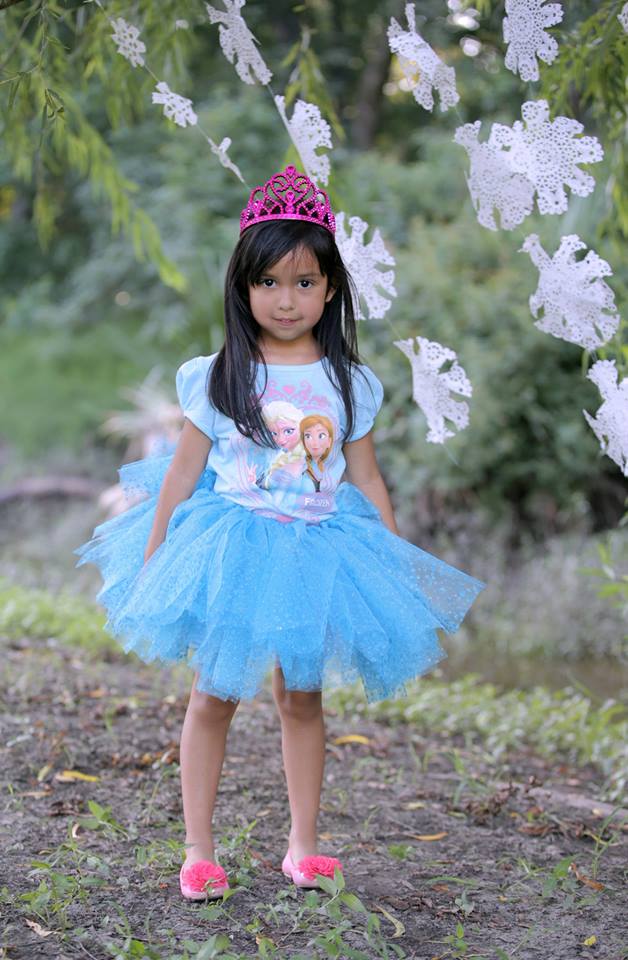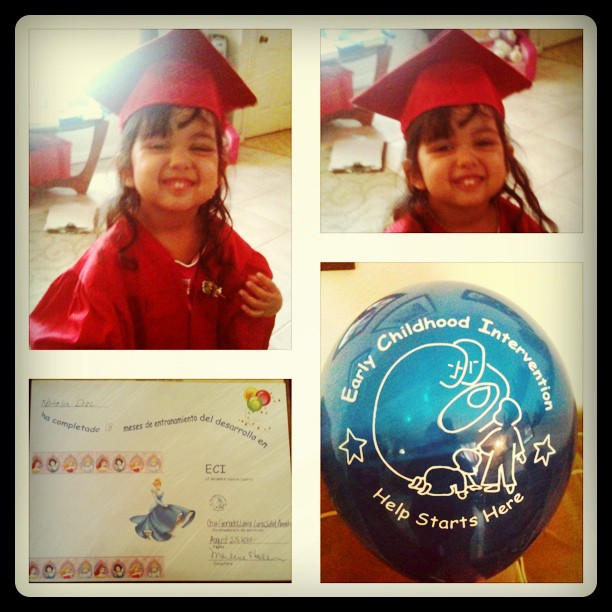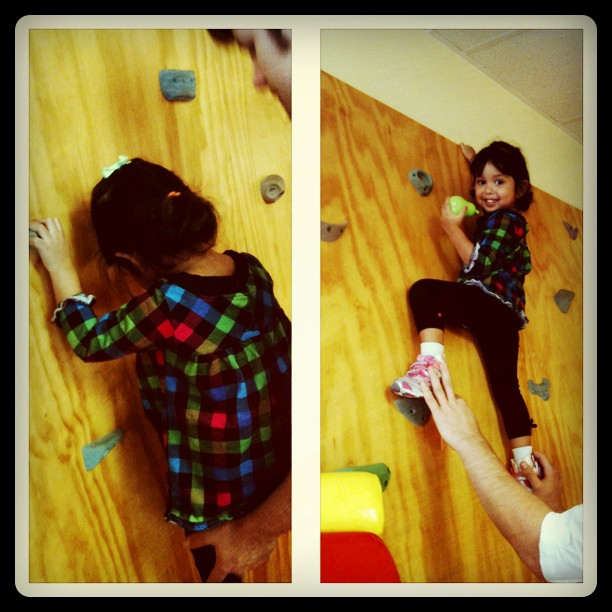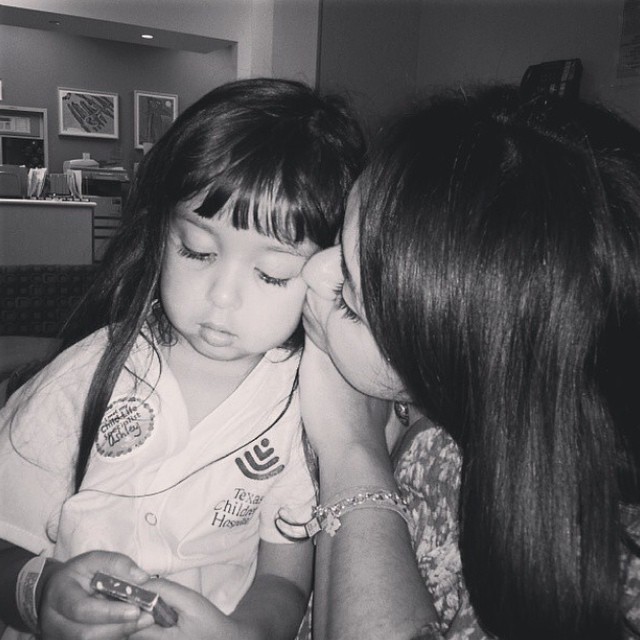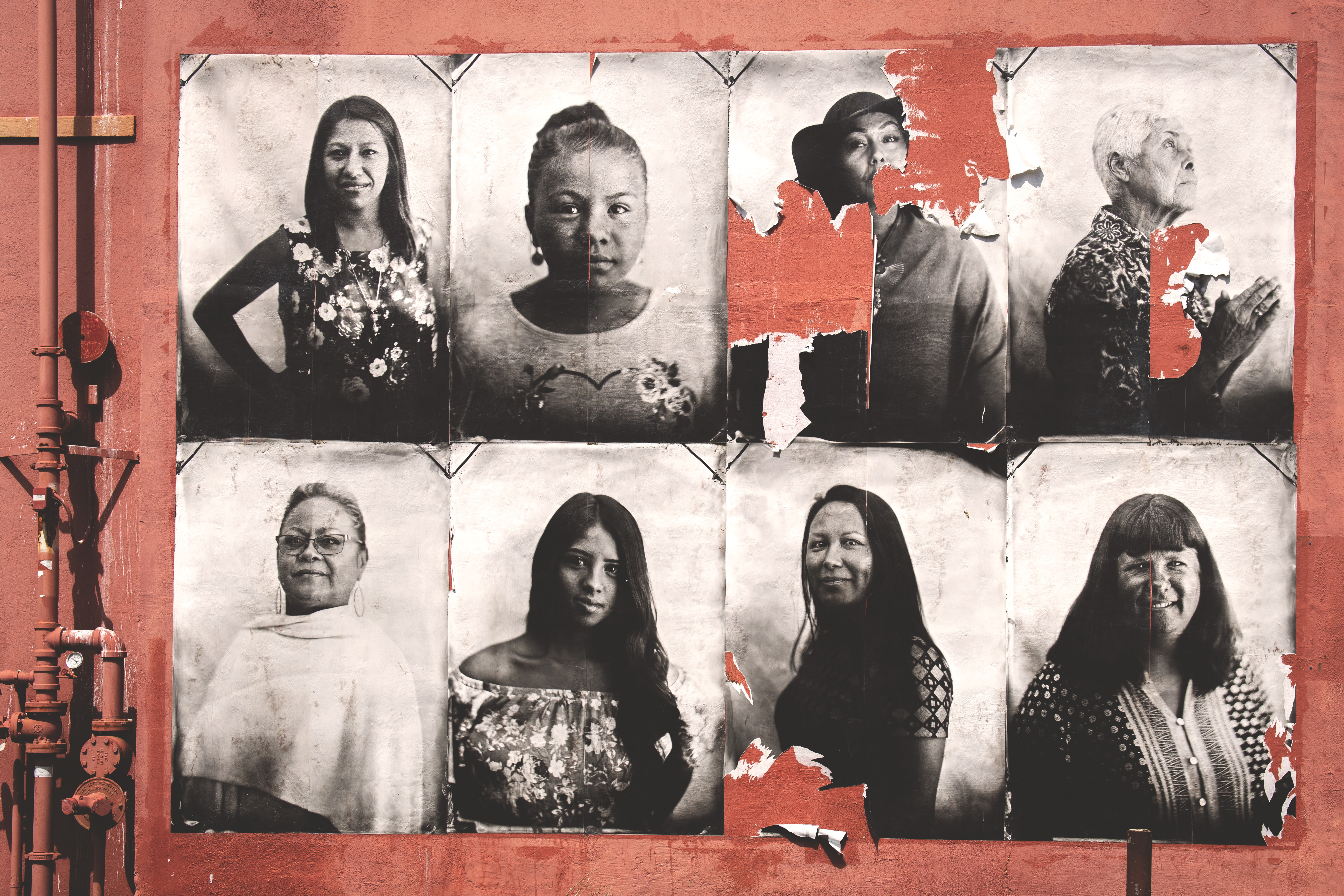Hypotonia became part of my vocabulary just like other medical words.
I had to educate myself and learn how to help our daughter, even during that time of denial and anger. Although I did not understand her diagnosis and the circumstances, I had to take action to support Natalia despite my emotions.
Hypotonia, can affect children and adults, it is not a specific medical disorder, but a potential manifestation of many different diseases and disorders that affect motor nerve control by the brain or muscle strength. Hypotonia is resistance to passive movement, whereas muscle weakness results in impaired active movement.
Recognizing hypotonia, even in early infancy, is usually relatively straightforward, but diagnosing the underlying cause can be difficult and often unsuccessful. Hypotonia is a condition that can be helped with early intervention.
From the time Natalia was diagnosed and until the age 3, she was with Early Childhood Intervention (ECI) in Texas. This statewide program is for families with children birth up to age 3, with developmental delays, disabilities or certain medical diagnoses that may impact development. ECI services support families as they learn how to help their children grow and learn. This program was a benefit to our daughter and a relief to me because I felt alone and lost on how to care for her. The caseworker who coordinated all of her treatments was patient, kind and became my friend.
With this program, Natalia received Physical, Occupational, Speech therapy, and a Dietitian. Each week there was someone in our home providing treatment and teaching me new ways to help her. I developed a friendship with each specialist, and they helped improve her quality of life, physically and emotionally.
At age 3 she “graduated” from the program and started with physical therapy at a private clinic. During these intense years of intervention, Natalia learned to walk, jump, run, eat better and much more, without therapy these would have been harder for her or taken longer to develop.
At the same time, we learned other areas that low muscle tone affects. For this reason, she was referred to a neuromuscular specialist to guide us on how to best treat her diagnosis. Her struggles with nutrition and constipation led to a gastroenterologist referral too. Currently, she continues to visit each of these doctors plus the orthopedic, and last year she began seeing a pulmonologist, due to breathing problems. Which led to a sleep apnea diagnosis in September 2016 and now she uses a CPAP, a mechanical device that is used to treat this condition while sleeping.
At age 4, she had a muscle biopsy to help determine the cause of her hypotonia. The test determined she has Bethlem’s myopathy, a rare disease that affects skeletal muscles and connective tissue. The disease is characterized by progressive muscle weakness and joint stiffness (contractures) in the fingers, wrists, elbows, and ankles.
Although we finally had a more specific diagnosis, this did not determine what causes myopathy in her body. For this, she will need specific tests that we hope to do in a few years.
In August Natalia turned 8 years old, and I share with you some challenges she has faced because she has had to grow faster than others her age. Her condition causes her to deal with situations that others do not have to.

Due to those challenges, I started repeating a phrase that even today our children repeat every night, “I’m brave, I’m smart, I’m strong, I’m Natalia/Eleazar.”
At her young age, I’ve seen her cry because she can not put on the shoes that she wants to wear to school because she has to wear her SMO’s. Or sometimes she sadly shares with me questions that her classmates ask her at school about her SMO’s or why she can not participate in certain activities. I’ve seen her get angry when she has to use her CPAP every night or get upset when she cannot tolerate certain sounds, smells, or touch.
We have cried together when she asked me, “Why do I have to be so different?”
In recent years she has had various questions to try to understand her body and condition.
It is difficult for her to understand why all the medical appointments, or understand when the doctors and I explain her diagnosis. If as adults we have difficulty grasping it, even more, a child her age.

Over the years and especially after I personally could accept the story that God is telling in her life, I have been able to better explain to Natalia her story and her value and worth. I do not always have all the answers, I’m not always patient enough or do I always understand what God is doing but I know it’s my responsibility to encourage her, pray with her, take her to her specialists, invest in her, advocate for her, use my voice to defend her and much more.
As a family, we have learned to have compassion and grace for her, our circumstances and for others. There are conversations that we have that others may not have.
We also recognize that there are others in more difficult situations than our daughter’s, but my responsibility is to validate her feelings. In the same way, God validates my feelings and meets me where I am. He does not make me feel guilty over days when I question His plans because I see her discouraged. On the contrary, He encourages me through His Word.
Throughout this journey, God has used various stories and verses during difficult times to show me His Presence. In particular 2 verses stand out.
In Genesis 16 we see the story of Hagar, when she found herself in the desert God spoke to her there. Verse 13 says, “She gave this name to the LORD who spoke to her: “You are the God who sees me.”
Natalia’s story continues, she will face moments in the desert, just like me. I hope that together we will continue to discover how beautiful, pure, precious and valuable her story is.

The other verse is Proverbs 31:25 “Strength and dignity are her clothing, And she smiles at the future.”
It is necessary that during the difficult seasons that Natalia experiences, that I keep reminding her how strong, beautiful, intelligent and brave she is.
The definition of strength is not only the physical capacity to do something, but also the moral capacity to withstand or face a certain circumstance. And dignity is based on the recognition of the person to be worthy of respect, that is, we all deserve respect no matter how we are.
Every day Natalia dresses in strength when facing another doctor appointment, a new morning and day at school, homework when she is exhausted, getting up when she falls, unpredictable changes and more. Every day I pray that not only others will respect and show her dignity but that she also realizes that she is full of that strength and dignity and can smile at anything the future brings.
Join my next and final post in this series about what God continues to teach me with our daughter.
Stay tuned for the next word …


